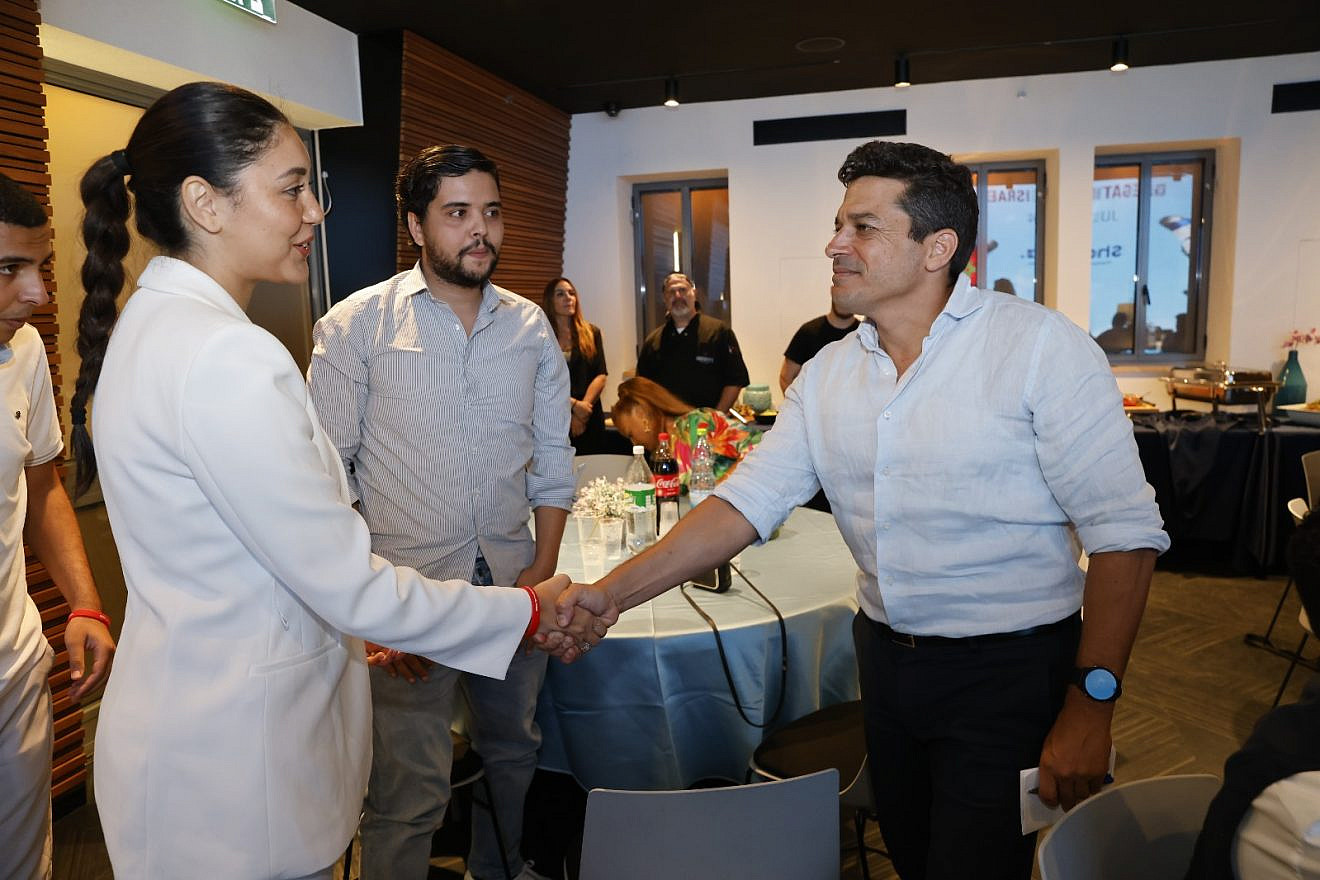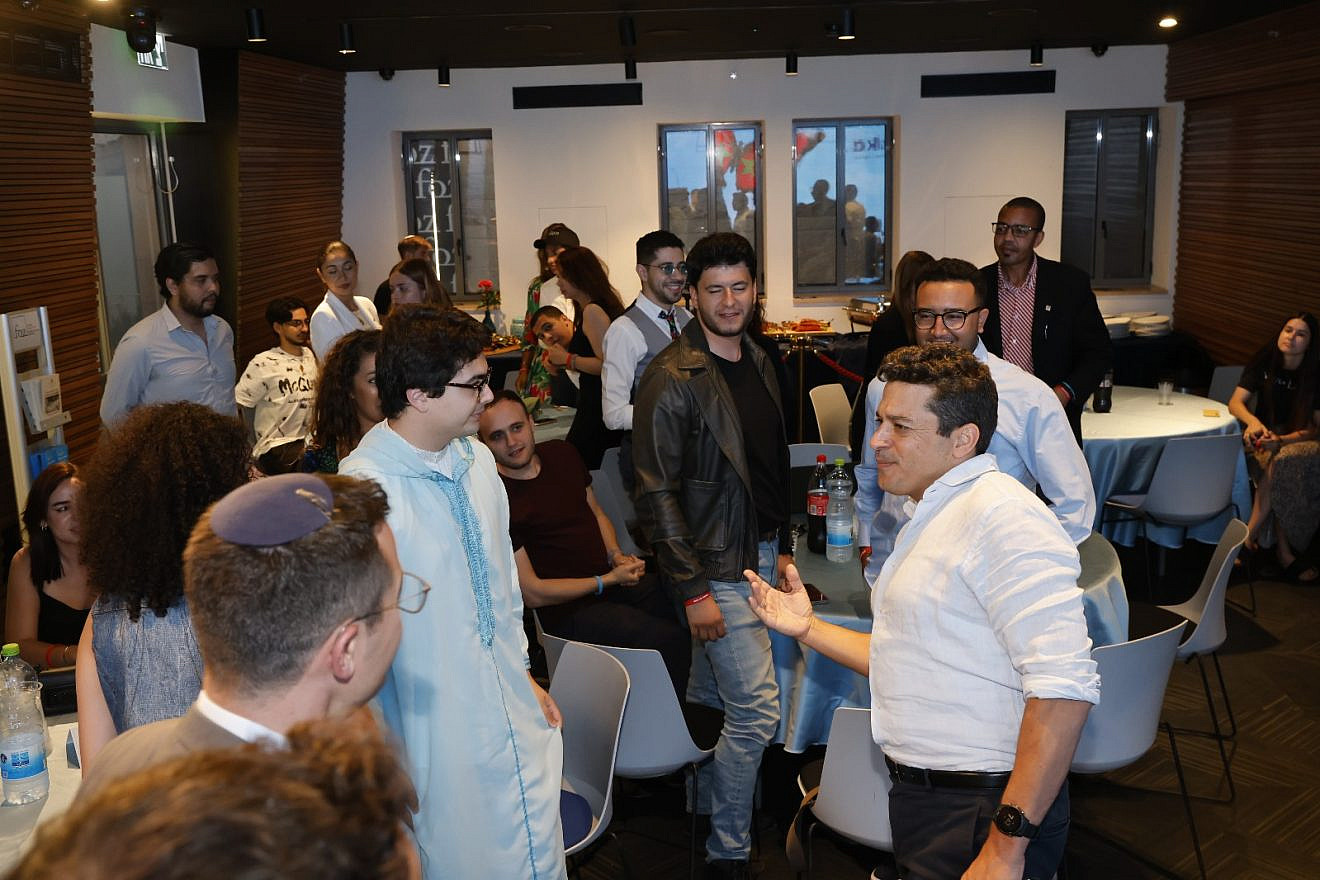A group of two dozen Moroccan social-media influencers and young professionals are visiting Israel this week to promote peace, as the war against Hamas in Gaza entered its tenth month.
The Muslim delegation in the Holy Land, organized by the Sharaka (Arabic for “Partnership”) nongovernmental organization, aims to build on the historic peace agreement signed between the two countries four years ago and serve as a counterweight to the vehemently anti-Israel reporting being broadcast around the world.
“In a world where nuance and balanced opinion have vanished, and where words like ‘Holocaust,’ ‘genocide’ and ‘massacre’ are being used left and right by people with more than questionable intentions, we must see the truth with our own eyes,” said delegation member and Casablanca resident Achraf Ibra, 29, during a gala evening at Jerusalem’s Friends of Zion Museum on Tuesday.
“In Morocco, we are getting only one narrative, and it’s the Al Jazeera narrative,” said Youssef Elazhari, director of Sharaka Morocco. “Some 99% believe this narrative, but we are the 1% who are trying to seek another narrative.”
Israel and Morocco, which had maintained decades of covert cooperation on defense and intelligence, formalized relations as part of the 2020 Abraham Accords that saw four Muslim-majority countries make peace with Israel. But with the Hamas Oct. 7 massacre that triggered the current war, the region has been on edge.
The weeklong visit, one of more than a dozen Sharaka has organized over the last four years from several Arab countries, was geared to strengthen the ties between the two peoples even as friends and family members back home were getting a different picture from the news.
Half the members of the well-educated delegation participated in March of the Living in Poland and toured Auschwitz.

‘Brothers of our grandparents’
Israel was an eye-opener for most of the Moroccans, who grew up in a world of social media that presents Israelis oppressing Muslims, and who are now inundated with anti-Israel posts over the Palestinian civilian casualties in the war against Hamas in Gaza, and criticism over their visit.
“It is a very hard time to come to Israel,” offered Wadii Ben-Mazzi, a 21-year-old student from Marrakesh on his first trip abroad. “Me, I was anti-Israel until the peace agreement was signed, and I decided to know who are the Jewish people,” he added, showing off his Instagram account, which seeks to teach the history of Jewish heritage in Morocco and build bridges between Muslims and Jews.
Like several of the Moroccan interviewees, Selma Anas, 26, an architect from Fez, expressed pleasant surprise at seeing Muslims walk freely through the Old City of Jerusalem and pray at the Al-Aqsa mosque on the Temple Mount.
“I was scared to come as I was always told that Israelis would not like me being Muslim and that Muslims are oppressed in the streets,” she said. “I grew up with a lot of beliefs that Israel was the bad guy. I do believe the Palestinian civilians are victims, but people are wrongly targeting Israel as the oppressors.”
Souhail Ben-Kabour, a 21-year-old student from Rabat, said: “We are here in the hopes to have peace and end with this story and get to peace in this holy land.
“There is a brotherhood in Morocco and in North Africa between the Jewish and Arab people,” he continued. “People remember that one day they were brothers of our grandparents. Jews are part of our memory, our culture and our identity.”
An estimated million Jews of Moroccan descent live in Israel, and 200,000 Israelis flocked to Morocco in 2022, many on “roots trips.”
The delegation members were warmly greeted throughout their seven-day visit by Israelis of all ethnic backgrounds, the group said, but especially by Moroccan Jews.
“The core of what you are doing here at this time, which takes moral clarity and courage at this time, is the seed of people-to-people peace,” said Sharaka executive director Dan Feferman.


























